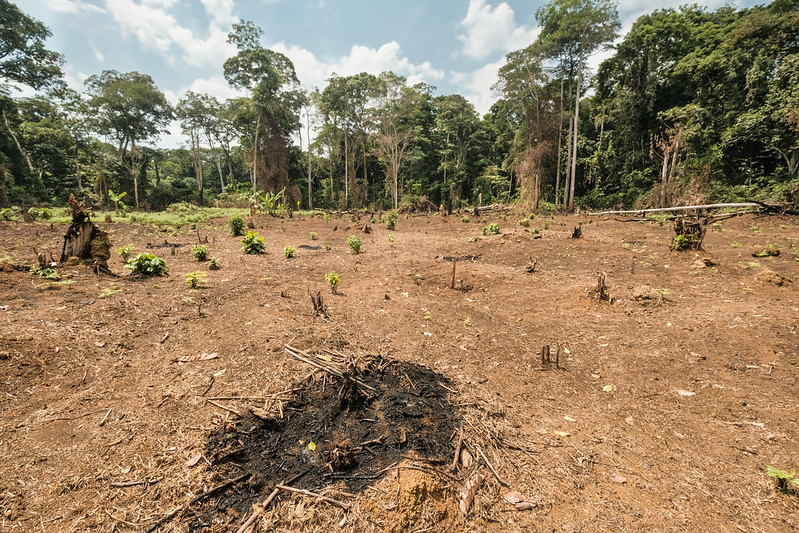
The new EU Deforestation Regulation (EUDR) seeks to protect the rights of Indigenous peoples, local communities, and customary tenure rights holders. The existence and effective enforcement of national legislation protecting the rights of these individuals is a key metric used by the European Commission to determine the risk level classification of goods-producing countries. The goods in scope are seven Forest and Ecosystem Risk Commodities’, or FERCs, which contribute significantly to deforestation: beef, cocoa, coffee, palm oil, soy, rubber and wood products (such as timber and paper). Indigenous peoples are disproportionately impacted by deforestation through heightened drought risk, loss of land and livelihoods, and the entangled ecological and spiritual burden placed on stewards safeguarding intergenerational wisdom.
EUDR Legislation will require goods placed on the EU market to be sourced from ‘deforestation-free land’: defined as land not deforested (whether legal or illegal) after 31 December 2020. The Commission has declared a commitment to supporting risk reduction through engagement for supplier countries categorised as high risk. The Commission has proposed structured dialogues, developing joint roadmaps, and building upon existing agreements as ways to support the transition to sustainable commodity production, processing, and trade. However, commitments have not yet been clearly defined, despite the acknowledged need for a comprehensive Union Strategic Framework to support compliance with requirements.
One major requirement for Operators placing in-scope goods on the EU market is to obtain from harvesters, including many smallholders and indigenous peoples, precise forest/plantation source geolocation coordinates. This presents the opportunity for improved transparency and traceability of supply chains; dialogue-building along the value chain; and verified recognition of sustainable trade, building leverage to secure fair prices. Support will be needed to facilitate this information collection and exchange process so as not to dissuade or prevent smallholders from compliance, which may cause shifts to non-EU market supply chains.
As part of their due diligence, Operators will be required to declare their consultation process with local communities and/ or civil society organisations in production areas. Recognition of the expert role of Indigenous peoples, and their right to involvement in resource management decisions, is recognised in the UN Declaration on the Rights of Indigenous Peoples and in the principle of Free Prior and Informed Consent developed at the International Labour Organisation Indigenous and Tribal Peoples Convention. Both the Declaration and Convention are referenced within the EUDR.
In addition to compliance with international standards recognising Indigenous rights, national reforms will be necessary to address the root causes of deforestation, including corruption, insecure tenure, and poor forest governance. There is an EUDR due diligence requirement for Operators to provide duly reasoned and verifiable claims of harvesters’ permissions to farmland; this relies on the affording and recognition of customary land rights. EU Forest Partnerships have begun to be developed with some regions, with the aim to deliver a holistic, cooperative, and community-centred approach to sustainable management. However, its rollout remains limited. Understanding the priorities for Indigenous peoples and local communities, alongside their support needs to achieve compliance with EUDR, will be vital to establishing clear governance criteria, national traceability systems, and building multistakeholder engagement along the value chain.


